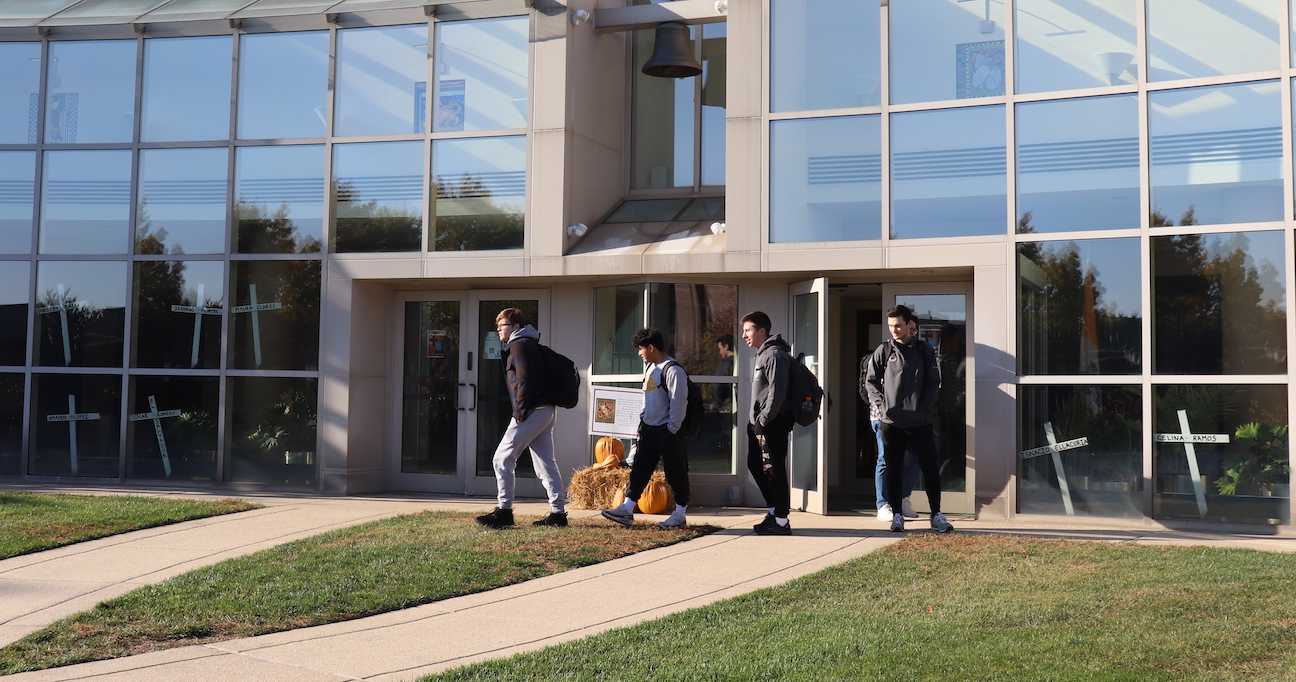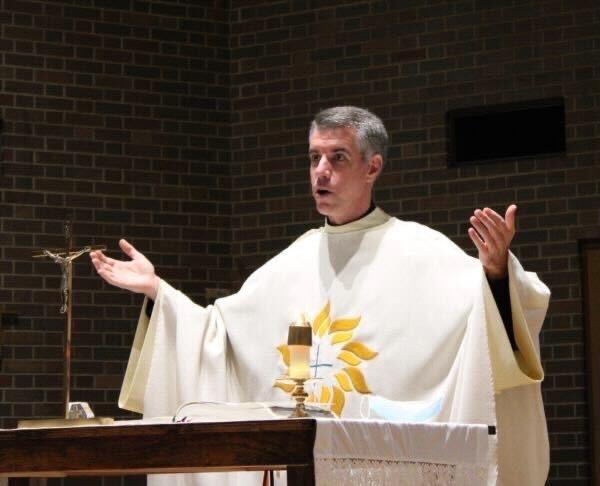At Jesuit colleges and universities across the United States, students have been grappling with how to respond to the most recent Israel-Hamas war.
On Oct. 11, three days after Israel formally declared war on Hamas, following Hamas’ killing of 1,200 Israeli citizens, Fordham University students assisted Campus Ministry staff in organizing an interfaith prayer service. St. Joe’s Campus Ministry also hosted a prayer service and mass Oct. 13.
In the days and weeks that followed, Loyola University Chicago students from several groups organized a walkout. The Saint Louis University student government impeached its president for comments related to a social media post involving the Israel-Hamas conflict. Students at Loyola University New Orleans walked out of their classes. The student chapter of Students for Justice in Palestine at Georgetown University organized a second rally on campus.
“A number of our schools have held prayer services and teach-ins,” said Deanna Howes Spiro, vice president of communications of the Association of Jesuit Colleges and Universities (AJCU).
Spiro also pointed to a list on the AJCU website of statements on the conflict from 24 of the 26 Jesuit colleges and universities in the U.S. An excerpt from an Oct. 12 letter to the St. Joe’s community by President Cheryl A. McConnell, Ph.D., is on the list. Many of these messages, including McConnell’s, quote Pope Francis’ Oct. 11 statement that “the Middle East does not need war but peace, a peace built on justice, on dialogue and on the courage to be fraternal.”
In many cases, though, the students involved in these activities want their universities to do more after issuing these statements. Many of the gatherings called for their universities to support a ceasefire, to do more to educate the student population or to make a firmer statement in opposition to the violence.
Caleb Datto ’26, a student member of Campus Ministry, said he wishes St. Joe’s would offer spaces for students to discuss the conflict and learn more about it. From his observations, “people are really scared to have these kinds of discussions…but [are] also really curious about forming their own opinions.”
John Paul, S.J., rector of the Tantur Ecumenical Institute in Jerusalem, who has witnessed the traumatic effects of the war, emphasized the importance of listening to various perspectives.
“One of the principles of social justice, or even Catholic social teaching is, ‘how do I see and understand what other people are experiencing, what they’re dealing with? How do I have a sense of human compassion for the other?’” Paul said. “And how do I then address those particular needs that are really rooted in human dignity and human life issues? How do I also deal…with the structures that cause all of that?”
Paul, who lives about 30 miles from the Gaza Strip, said he can hear bombs dropping and feel them hit the ground with a “thud.” On several afternoons, he said he has looked out his window toward Bethlehem to see tear gas being fired.
“Even though Tantur is a very safe and secure environment, not far away are people living in the midst of trauma, turmoil, conflict, mistrust, hatred and misunderstanding,” Paul said. “And it’s really heart wrenching. It’s heartbreaking.”
Paul Nicholson, S.J., who serves as socius, or second-in-command to the provincial superior, of the United Kingdom Jesuits said it is important to use humanizing rhetoric when speaking about the conflict.
“If you feel that it is right to speak out, encourage what you see as good actions here and denounce what you regard as evil actions,” Nicholson wrote in response to written questions from The Hawk. “Don’t, in particular, denounce people as evil – you will not know their full backgrounds and motivations.”
Nicholson encouraged people to “listen carefully to the rhetoric” as it is often “based on fear, hatred, anger, demonization [and] dehumanizing the other.”
In addition to emphasizing the importance of dialogue, some Jesuits, like Pope Francis, have encouraged action. On Nov. 5, Pope Francis called for a ceasefire and a two-state solution, which the Society of Jesus “endorses” in its Oct. 26 press release on the conflict.
Steve Surovick, S.J., superior of the Arrupe Jesuit Community and director of Mission and Ministry at St. Joseph’s Preparatory School, said there isn’t necessarily a singular Jesuit point of view on the conflict outside of Pope Francis’ call for peace.
“Like any conflict of this nature, there are combatants with civilians seemingly caught in the middle,” Surovick said. “War is a failure on many levels, but especially when it comes to the humanitarian crisis that inevitably follows in its wake for all involved, either directly or indirectly.”
Surovick recommended supporting the Jesuit Refugee Service, which works with refugees and other displaced persons in the Middle East, as one actionable step.
Similarly, Nicholson said “concrete actions might include contributing to organizations offering humanitarian aid and offering support to those, including those nearer to home, who are more directly affected by what is happening.”
Paul said living amid the conflict has furthered his thinking about Jesuit principles of social justice.
“Our heart is in the right place, our words are in the right place. Our actions are somewhat in the right place,” Paul said. “But I still think one of the things that I’m learning about Jesuit social justice issues and principles is in many of our institutions, we can talk a good game, but what’s the deeper impact? How do we really instill all of that into the lived reality of not only the Jesuits who are talking about it, but into students, into faculty, into families that are connected with all of this?”








































